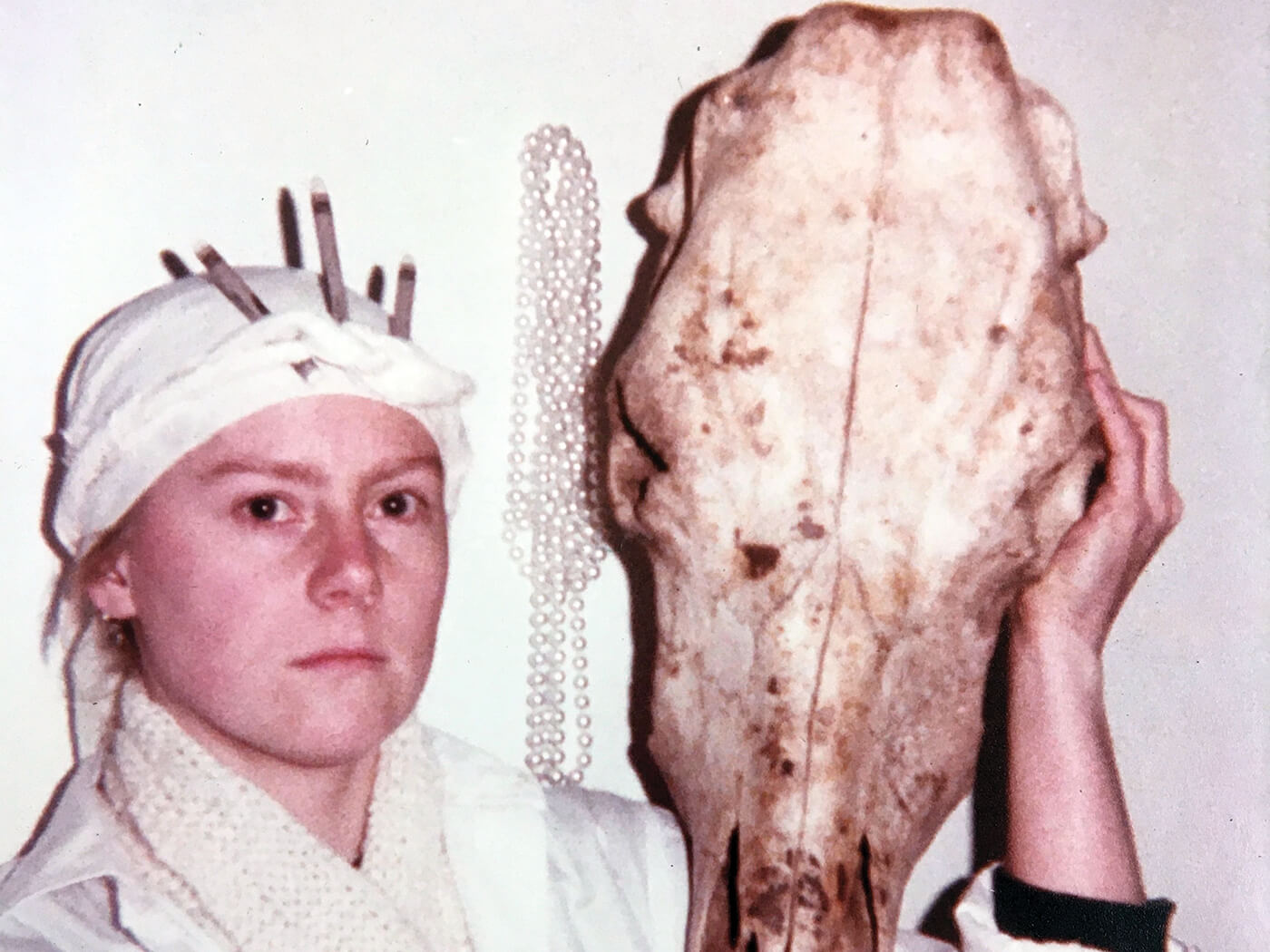Fish around for a minute or two googling “Cheri Knight” and you’ll soon come across a song of hers on YouTube called “Dar Glasgow”. It’s the opening track on her second solo album, 1998’s The Northeast Kingdom. The cover is a painting of Knight in a dress of green leaves holding a guitar in a vegetable field, alluding to her two passions, music and farming. The song is a rural gothic folk tale, spun out over the drone of a harmonium, which slowly pulls the listener in. That harmonium is played by Steve Earle, whose label E-Squared released the album, and the song also features additional vocals by Emmylou Harris.
In some respects, this is the pinnacle of Knight’s patchy career as a semi-professional musician, though she enjoyed modest attention in the early 1990s as the vocalist and bassist in roots-rockers Blood Oranges. After Northeast Kingdom, she withdrew from music and carried on tending the land where she lived in Western Massachusetts. She hadn’t been heard of since – until now.
American Rituals rewinds two decades to the late ’70s and early ’80s to focus on Knight’s early DIY recordings, when she studied music composition at the free-thinking Evergreen State College outside Olympia, Washington, long before the city became an indie hotbed. Raised in a musical household and schooled in philosophy and architecture, she was familiar with the likes of John Cage before entering Evergreen, but there, with access to new ideas, instruments and studios, she was able to channel her interests into creating quite a pure kind of music from voice samples and audio collages; pared-back, elemental pieces where the act of construction – the ritual – is intrinsic to the finished work.
She’s direct in her technique, nothing is out of place. “Hear/Say” primarily loops and layers those two words – we hear what she is saying – for five minutes until they become either meaningful or meaningless; “Primary Colours” coalesces into a melody comprised of her repetition of the names of various colours. For “Prime Numbers”, she assembles a basic groove from handclaps, bass and polyvocal chants. Others, like “Tips On Filmmaking” and “Water Project #2261”, share a joyous exoticism with Steve Reich’s rich minimalism and seem less concerned with process. Knight worked closely with the composer Pauline Oliveros while at college and her wisdom, her approach to listening, seems to have informed Knight’s thoughtful music.
At the time, the seven pieces here came out on various compilations celebrating the local DIY scene, released on vinyl by Evergreen College or Kerry Leimer’s Palace Of Lights imprint. Knight was also part of Olympia’s Lost Music Network alongside fellow musician Bruce Pavitt, who’d go on to start Sub Pop. Remarkably, for such a casually pioneering composer, this is the first time Knight’s foundational music has appeared in one place. Now she’ll surely get some of the recognition she deserves.

